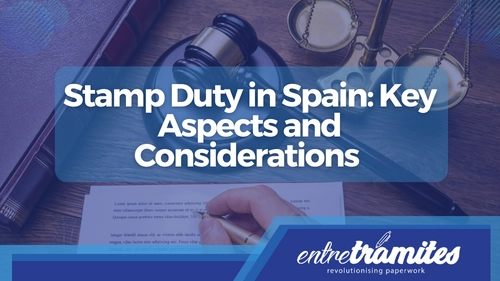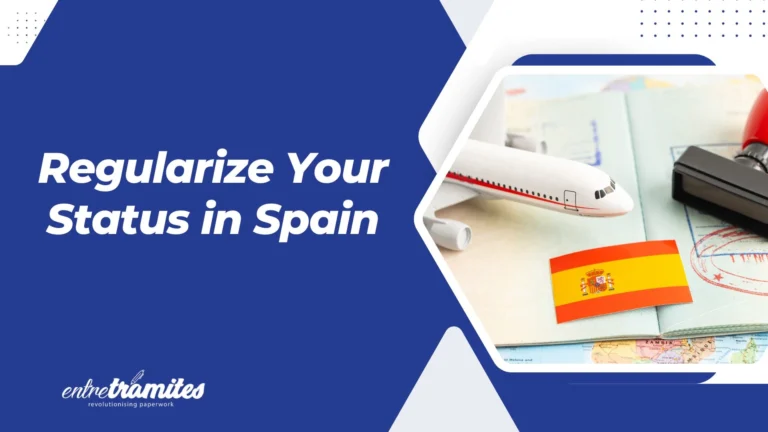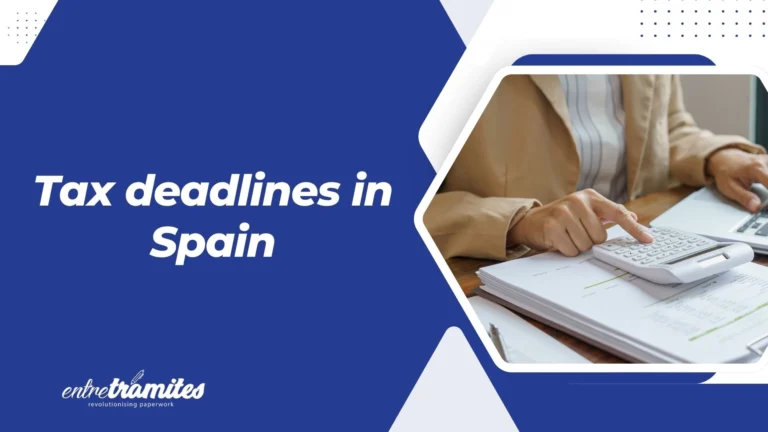The Stamp Duty (Impuesto de Actos Jurídicos Documentados or AJD) is one of the most relevant taxes in the Spanish tax system. This tax records the formalization of notarial documents, such as public deeds, private contracts, and other legal instruments that must be registered before notaries or property registers.

Tutorial Video: Spanish Stamp Duty – All You Need to Know!
Nature and Objective of the Stamp Duty
The Stamp Duty is part of indirect taxes, which means that it does not directly tax the underlying transaction, such as the purchase of a home or the establishment of a mortgage, but rather the formalization and registration of the documents that support these operations. Its main objective is to generate income for the autonomous communities and autonomous cities of Ceuta and Melilla.
Scope of Application of the Stamp Duty
The Stamp Duty Tax applies to a variety of legal documents, including:
- Public deeds: They include the purchase of properties, constitution of mortgages, donations, wills, and other notarial acts.
- Private contracts: These contracts must be registered before a notary or property registers, such as long-term lease contracts.
- Notarial documents: This includes notarial documents that are not related to economic operations, such as notarial acts and testimonies.
Tax Rate
The tax rate of the Stamp Duty varies depending on the autonomous community in which the document is formalized. Each autonomous community has the power to establish its own tax rate, which has led to significant differences throughout the country. Therefore, it is essential to consult with local tax authorities or a tax professional to determine the current tax rate in a specific location.
Subjects Obligated to Pay
The Stamp Duty is usually paid by the beneficiary of the documented legal act, this means, the person who obtains a benefit or acquires rights through the document. In the case of mortgages, it is common for the borrower to assume responsibility for paying the Stamp Duty.
Exemptions and Reductions
In some cases, there are exemptions or reductions from the Stamp Duty. For example, in the creation of mortgages, it is possible that there will be a reduction in the amount of the tax, especially for officially protected housing or young buyers. In addition, mortgage loan deeds intended for the purchase of a home can benefit from a reduction in the tax base.
Procedure and Deadlines
The Stamp Duty is settled and paid through self-assessment, which means that the interested party must file a declaration and pay the tax within an established period after the document is formalized. Failure to comply with these deadlines may give rise to late fees and interest.
The Stamp Duty (AJD) is an essential component of the Spanish tax system that affects a variety of legal and financial transactions. Due to differences in tax rates by location and potential reductions and exemptions available, it is crucial that taxpayers and legal professionals stay up to date on current legislation and consult with local tax authorities or tax advisors to ensure proper compliance with the tax obligations related to the AJD.
Do you need more information about tax obligations in Spain?
At Entre Trámites we offer various services of management, advice, and support in bureaucratic procedures for self-employed, SMEs, and other types of companies. Contact us! Through our contact form, you can leave your details for us to call you, schedule a free consultation, or simply text our WhatsApp.





